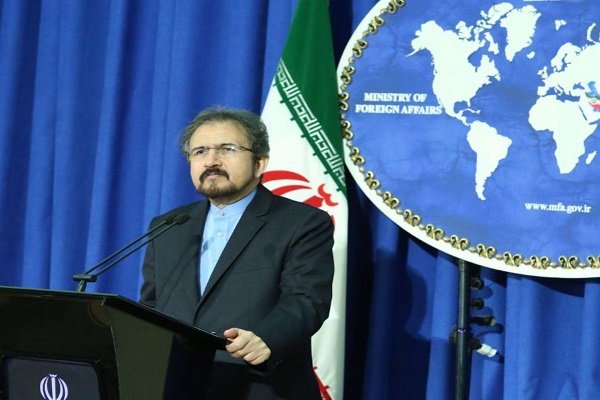Iran: Any party who violates nuclear deal will pay heavy price

TEHRAN – Iran’s Foreign Ministry spokesman said on Monday that any party that violates the nuclear deal will have to pay a heavy price.
“In case a country for whatever reason fails to meet its commitments [under the deal], it will have to pay the heavy price of non-compliance. It doesn’t matter what country it is,” Bahram Qassemi told a press briefing.
“As previously said, Iran will not initiate a violation of the JCPOA but of course will react as necessary to violations by any other country and will not tolerate breach of the JCPOA,” the spokesman insisted, using the official name for the nuclear agreement.
However, he said, any decision on non-compliance by any party will be made by the high-level Iranian supervisory board.
The deal, formally known as the Joint Comprehensive Plan of Action (JCPOA), was struck between Iran and the 5+1 countries in 2015. Iran’s partners under the deal are France, the UK, China, Russia, the U.S., Germany, and the European Union.
Washington has recently been resorting to different pretexts to undermine the deal including efforts to influence the International Atomic Energy Agency’s reports about Iran’s compliance to the deal.
Qassemi said the IAEA would not allow third parties to determine what it has to do.
'Zarif’s meetings in New York being planned'
Qassemi also said Foreign Minister Mohammad Javad Zarif plans to travel to New York for the annual meeting of the United Nations General Assembly.
There is speculation about a possible meeting between Zarif and the new U.S. Secretary of States Rex Tillerson.
However, Qassemi said the Foreign Ministry was currently planning meetings that are necessary.
------ ‘Iranophobia is a worn-out tactic’
Asked about the recent anti-Iran remarks by Saudi Foreign Minister Adel al-Jubeir, Qassemi said Iranophobia has turned into a worn-out tactic that is being used as a tool for the pursuance of political goals by certain countries.
Iranian influence in the region is an obvious and natural thing, he said.
-------- ‘Ties with Turkey to grow further’
The spokesman also said the Islamic Republic’s new administration is willing to follow stronger regional cooperation with Ankara following the recent exchange of visits between high-ranking officials, including a trip to Ankara by Iran’s Armed Forces Chief of Staff Mohammad Baqeri.
“This is a new atmosphere between the two countries where, seeing international and regional situations, they intend to use their capacities to work toward a synergy that would serve to establish peace and stability in the region,” the spokesman said when asked about new developments in Tehran-Ankara relations.
“Negotiations between Iran and Turkey will continue with more strength and we hope that the two countries succeed in improving upon the existing level of cooperation,” the Iranian diplomat stated.
On August 21, Qassemi called trip by General Baqeri to Turkey exceptional and successful. He said Turkish and Iranian military commanders held talks on major topics, including cooperation on the Syrian conflict and counter-terrorism.
Turkey's ties with Washington have been recently strained by the Unites States’ support for the Kurdish fighters in Syria. The visit of General Baqeri may be viewed as the latest indicator of Ankara’s increasing cooperation with other powers, such as Iran and Russia.
Iran and Russia back the government of President Bashar al-Assad in the Syrian conflict. Turkey used to cooperate with the opposing front, comprised of Syrian dissidents, Saudi Arabia, and the U.S.
However, in recent months Ankara has grown more welcoming of Iran and Russia’s position and the three countries continue to hold negotiations under the title of the Astana talks to reach common grounds on the Syrian issue.
Official reports indicate that in an upcoming meeting within the Astana talks, the three countries expect to finalize their plans on cooperation to sustain and strengthen de-escalation zones in Syria.
SP/PA
